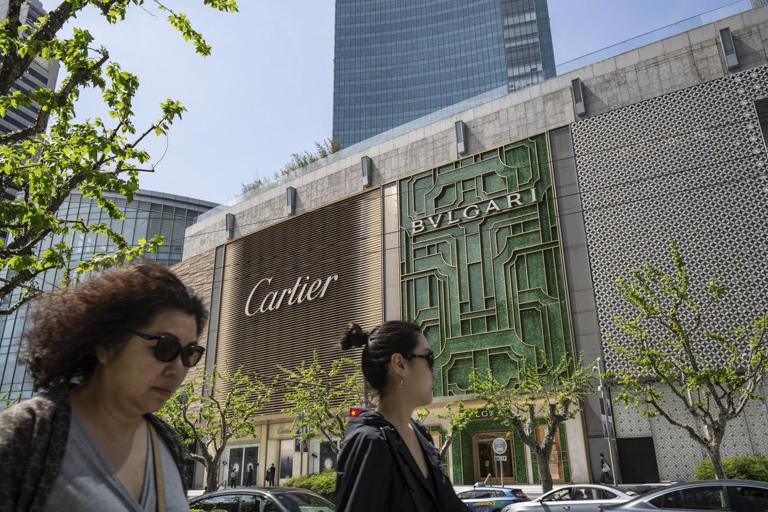Richemont, the parent company of renowned luxury brands such as Cartier and Van Cleef & Arpels, faced a challenging fiscal first quarter marked by a slight decline in overall sales. The company’s total sales for the period ending June 30 amounted to 5.27 billion euros ($5.74 billion), down marginally from 5.32 billion euros in the previous year. This performance aligned closely with market expectations, as analysts had anticipated sales around 5.28 billion euros.
The most significant factor contributing to Richemont’s sales downturn was the sharp contraction in key Asian markets, particularly China, Hong Kong, and Macau, where sales plummeted by 27%. This decline underscored a notable downturn in consumer confidence amidst ongoing economic uncertainties in China, compounded by a sluggish recovery from the pandemic and challenges in the real estate sector.
In its earnings report, Richemont highlighted a divergent performance across its core business divisions. The Jewelry Maisons division, which encompasses prestigious brands like Cartier and Van Cleef & Arpels, demonstrated resilience with a 4% increase in sales at constant exchange rates, reaching 3.66 billion euros. This performance exceeded analysts’ expectations, who had forecasted sales around 3.64 billion euros. The robust demand for high-end jewelry, particularly from international markets outside Asia-Pacific, partially offset the challenges faced in Asia.
Conversely, the specialist watchmakers segment, including brands such as Piaget and Vacheron Constantin, reported a 13% decline in sales to 911 million euros. This division, heavily reliant on the Asia-Pacific region, experienced significant headwinds due to reduced consumer spending in China and Hong Kong. The decline in sales was in line with expectations, reflecting broader softness in Swiss watch exports and ongoing market challenges since mid-2021.
Richemont’s performance echoed concerns expressed by its luxury industry peers, including Burberry, Swatch, and Hugo Boss, all of whom have recently cited difficulties in the Chinese market. The luxury sector’s reliance on affluent Chinese consumers, who historically fueled substantial growth in high-end fashion and accessories, has been tempered by cautious spending amid economic uncertainties and evolving consumer behaviors.
Looking ahead, Richemont and other luxury brands are closely monitoring economic indicators and consumer sentiment in China, anticipating potential shifts in market dynamics. As investors scrutinize these developments, the luxury goods sector remains focused on adapting strategies to navigate ongoing challenges while maintaining resilience in the face of evolving global economic conditions.
